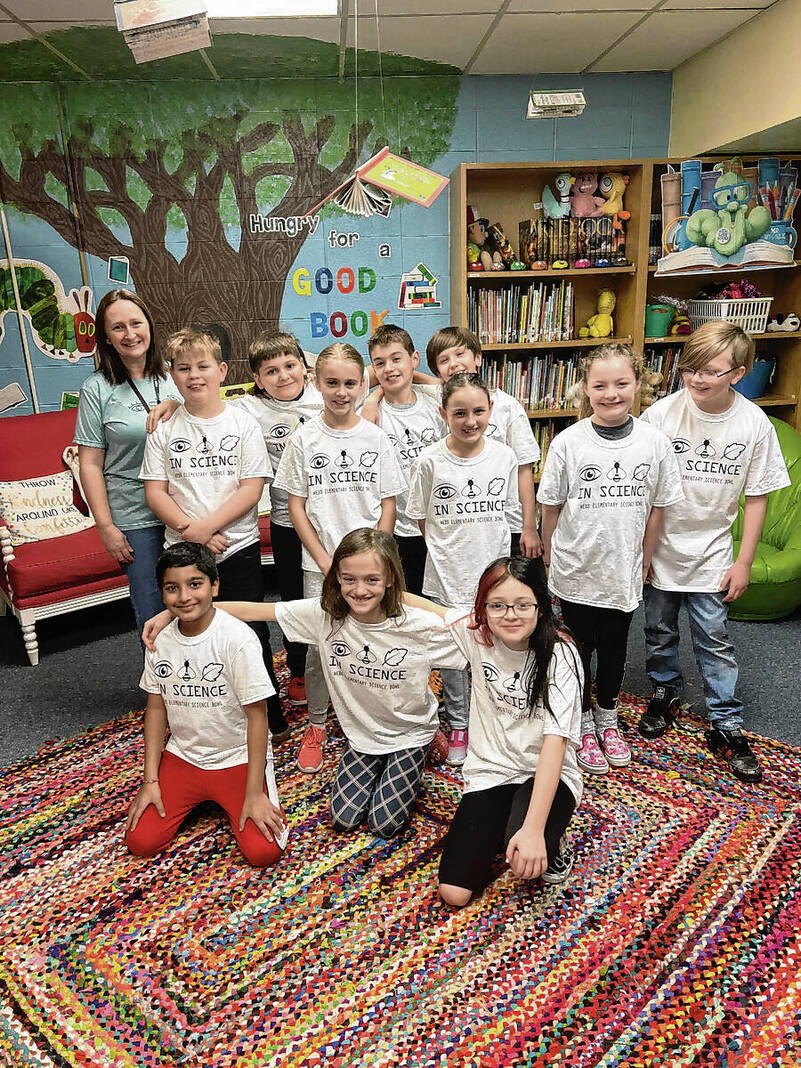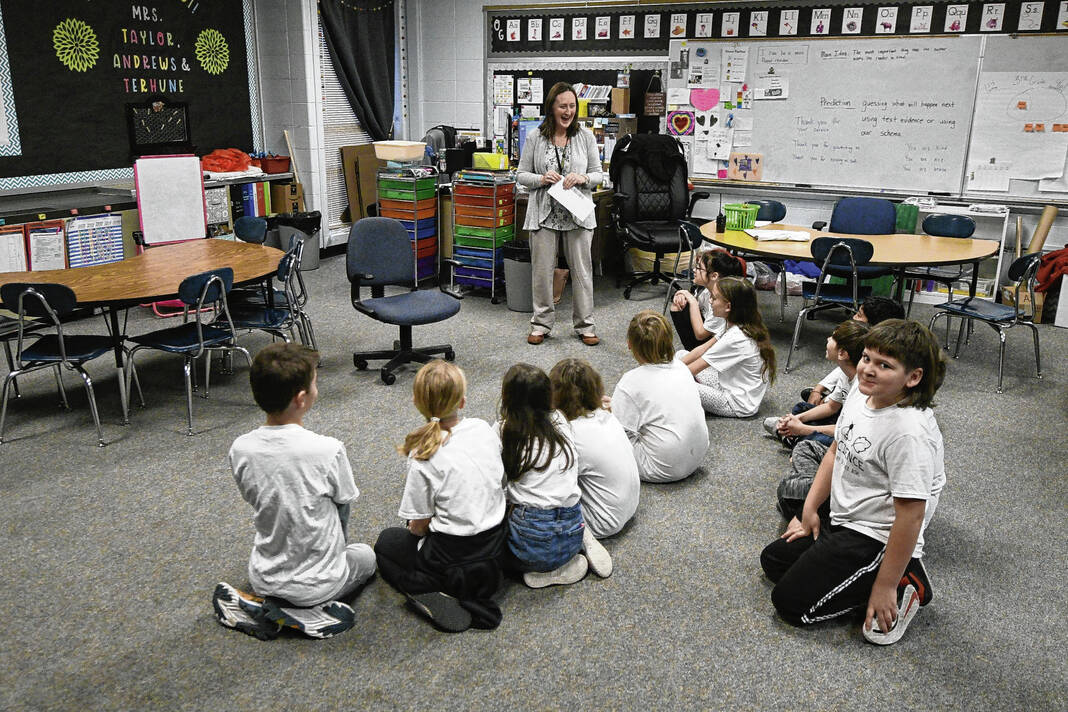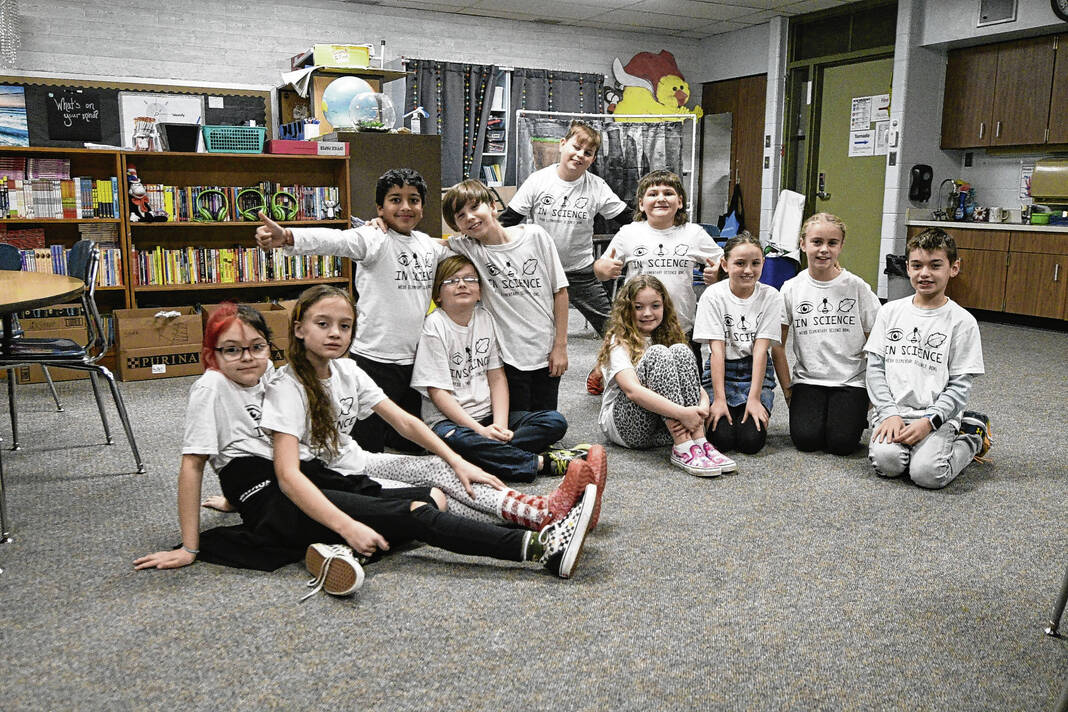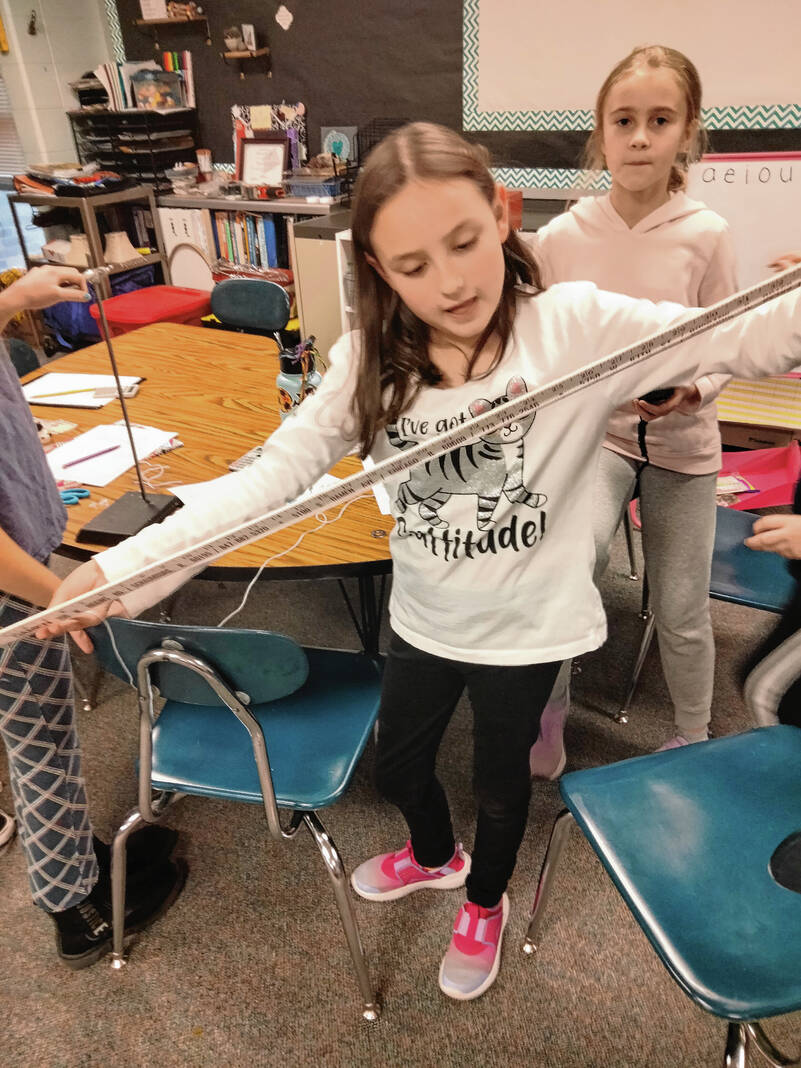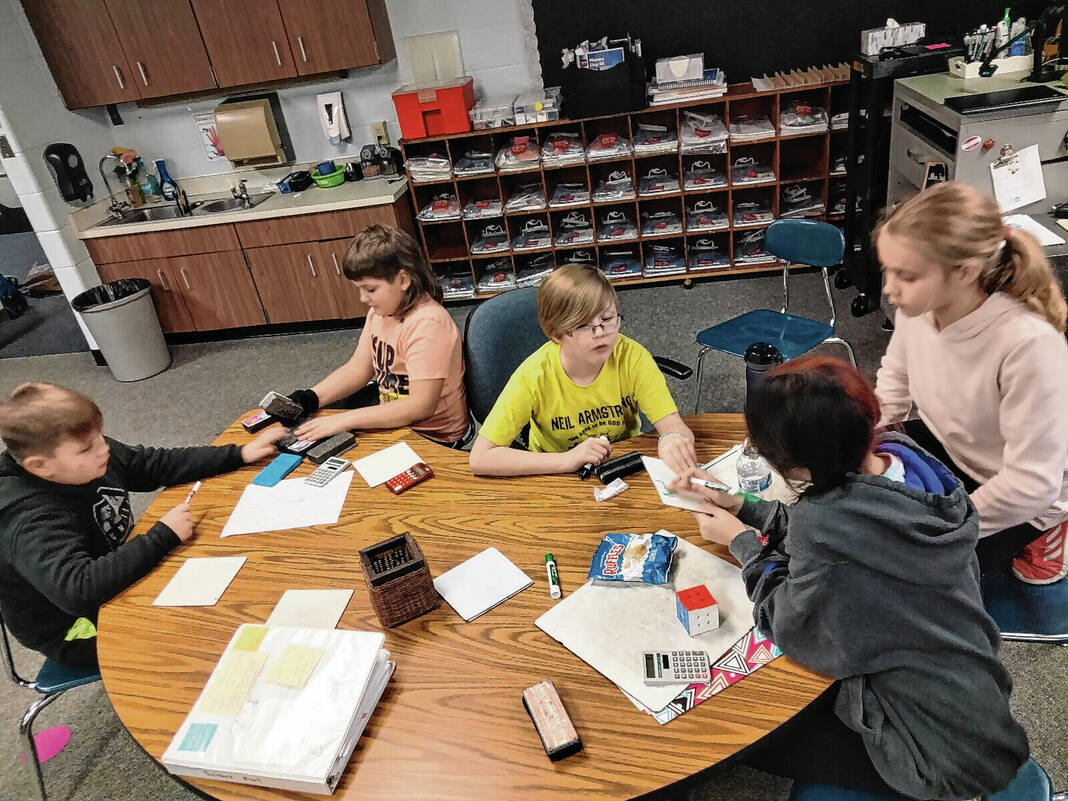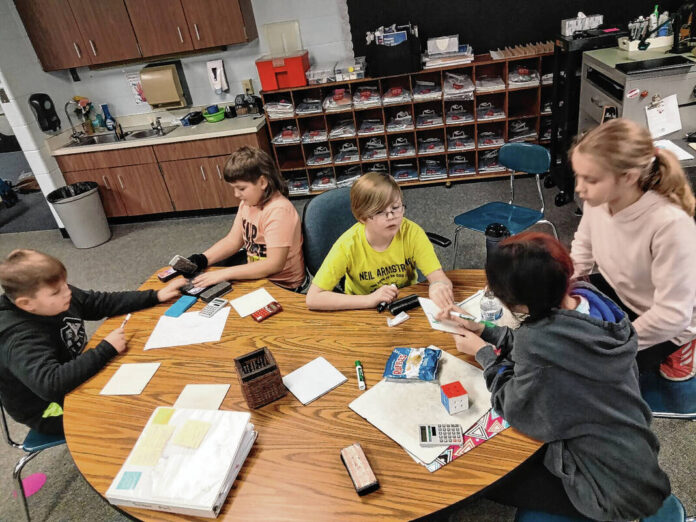
Webb Elementary School fourth graders practice for the 2023 Science Bowl. The students ended up placing first in the state for their grade level.
SUBMITTED PHOTO
When it came time for recess, the students had no interest in going outside.
Instead, 11 Webb Elementary School fourth graders studied kinetic and potential energy using a swinging pendulum to prepare for the Indiana Association of School Principals Science Bowl competition. Their work paid off, as they won the statewide fourth-grade category, outperforming kids from Madison to Valparaiso.
Webb joined fourth-grade squads from Creekside Elementary School and Needham Elementary School in the top 10, which finished seventh and ninth respectively, according to the IASP website.
There was a simple answer to what drove Webb students to stay inside during recess and after school to study for the bowl, fourth grader Saskia Kolderup said.
“I didn’t want to go out in the cold,” she said. “I probably would just be walking around bored not knowing what to do if I just stayed outside. I wanted to learn more about physics.”
The Science Bowl included three segments. For the individual round, Coach Angela Andrews chose four students, Kolderup, Logan Davis, Rudra Patel and Nicoli Ferree to read an article related to energy and answer questions about it without collaboration, Andrews said.
Ferree said he joined the Science Bowl team because of his desire to pursue a career in the field.
“In first, second and third grade I would always look up everything I could in science,” he said. “When I learned there was something called Science Bowl in fourth grade, I knew I had to do it to achieve my goal of being a scientist.”
During the team round, students had to come to a consensus on an answer. Davis helped his team switch an answer to the correct one because of some quick thinking, he said.
“The question was: which does not convert electrical energy to mechanical energy? Everyone thought it was a DVD player,” Davis said. “It was a wind turbine. It coverts mechanical to electrical.”
To prepare for the Science Bowl, students memorized formulas for kinetic energy and potential energy. The competition was tougher than last year’s, which focused on the rock cycle, Andrews said.
“There were a lot of formulas to memorize,” she said. “The competition is based on fifth, sixth and seventh-grade standards. It just makes my heart so happy. I love seeing them so passionate about science and the time and hard work they put into it.”
That preparation got them a perfect score in the experimental round, during which students used different lengths of string to determine if it would affect the period of a pendulum, or the amount of time it took to swing from one end to the other and back. The performance helped Webb score a 99.5 overall, clearing the next best school, Thorpe Creek Elementary School, by 10 points.
Andrews surprised the students, telling them she was proud of them regardless of their ranking before revealing the news, fourth grader Oliver Cochran said.
“When she said we were first place I started crying. I was super happy and hugged Nicoli. I never thought I would be state champion in my whole life,” he said.
Science Bowl helps students not just academically, but socially, said Stephanie Dunn, Creekside Elementary School’s Science Bowl coach.
“It really is a great contest,” Dunn said. “It teaches them not just about science, but communication, cooperation and teamwork. I hope they develop a love of science and curiosity for trying to figure out the world around them.”
The competition helps foster an enthusiasm for science that can last a lifetime, said Dylan Purlee, principal at Needham Elementary School, a longtime participant in Science Bowl.
“I hope it ignites a spark for them to have a passion toward science,” he said. “Maybe they’ll realize ‘science is my thing, science is cool.’ It sparks what could be a lifelong interest and maybe a job in the science field.”


